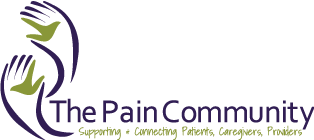On March 1-2, 2014, the State Pain Policy Advocacy Network (SPPAN), a project of the American Academy of Pain Management, brought together 17 decision-makers representing 15 organizations that advocate for people with pain. The goal was to begin developing a plan for collective action among these organizations and their constituents that will lead to positive pain policies—policies that will ensure access for people with pain to the care they need and deserve.
An experienced facilitator of 9By9Solutions, who was contracted by SPPAN, worked tirelessly to ensure consensus was achieved among participants. Pre-meeting work was performed that included one-on-one interviews, surveys, and collection of relevant background information. A select group of leaders assisted with advance planning which helped to move the group toward the identified goals of the meeting. TPC was one of those leaders.
The meeting concluded with consensus around two major outcomes—key messages and a project plan. With the help of the facilitator, the leaders set aside organizational differences and reached a consensus on four basic beliefs, or key messages. These beliefs are:
- Chronic pain is a real and complex disease that may exist by itself or be linked with other medical conditions
- Chronic pain is an unrecognized and under resourced public health crisis with devastating personal and economic impact
- Effective pain care requires access to a wide range of treatment options
- Allowing people to suffer with unmanaged pain is immoral and unethical.
Next, an established project plan was selected– to support, influence and monitor the Health and Human Services’ (HHS) implementation of the National Pain Strategy.
As part of the Affordable Care Act, a charge was sent to HHS to develop a comprehensive population health level strategy for pain. The Office of the Assistant Secretary for Health directed the National Institute of Health to create a comprehensive population health level strategy for pain prevention, treatment, management, and research. This work has been developed through the Interagency Pain Research Coordinating Committee (IPRCC).
A core recommendation (2-2) of the 2011 IOM Report: Relieving Pain in America highlights specific objectives for the strategy plan that the IPRCC used as their guiding principles:
- Describe how efforts across government agencies, including public– private partnerships, can be established, coordinated, and integrated to encourage population-focused research, education, communication, and community-wide approaches that can help reduce pain and its consequences and remediate disparities in the experience of pain among subgroups of Americans.
- Include an agenda for developing physiological, clinical, behavioral, psychological, outcomes, and health services research and appropriate links across these domains.
- Improve pain assessment and management programs within the service delivery and financing programs of the federal government.
- Proceed in cooperation with the Interagency Pain Research Coordinating Committee and the National Institutes of Health’s Pain Consortium and reach out to private-sector participants as appropriate.
- Involve the appropriate agencies and entities.
- Include ongoing efforts to enhance public awareness about the nature of chronic pain and the role of self-care in its management.
Their work has been intense and focused; the National Pain Strategy Plan is expected to be posted for the public comment early this summer (2014).
The group agreed on, and selected leaders to be accountable for, each step of a seven-part work plan to implement this project statement. Recognizing the summer deadlines to complete several steps of the plan, the SPPAN Director will facilitate regular meetings among the leaders to determine the best way to achieve these goals.
Although the degree of support for the project statement and key messages varied among the participants, each leader nevertheless agreed to join in the group’s endorsement of these meeting products. Results of a post-meeting survey revealed that 100% of the respondents were “Very Satisfied/Satisfied” with the results of the meeting; 100% answered “Yes, I remain committed to the collective process moving forward”.
Participating organizations:
- American Cancer Society Cancer Action Network
- American Chronic Pain Association
- C-Change
- Chronic Pain Research Alliance
- Global Healthy Living Foundation
- Interstitial Cystitis Foundation
- National Fibromyalgia & Chronic Pain Association
- National Patient Advocate Foundation
- Neuropathy Association
- Pain Connection
- Pain Action Alliance to Implement a National Strategy (PAINS)
- Power of Pain Foundation
- Reflex Sympathetic Dystrophy Syndrome Association
- The Pain Community
- US Pain Foundation
This promises to be exciting work. TPC will be keeping you informed along the way and ask for your involvement and action at critical moments. Stay tuned.

Stay tuned!
Cannot wait to hear more